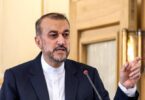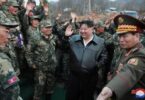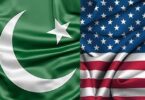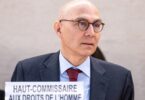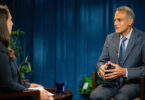VIENNA (Reuters): Indirect talks between Tehran and Washington on reviving the 2015 Iran nuclear deal resumed in Vienna on Saturday as the European Union said negotiations were “intense” and Germany called for rapid progress.
The sixth round of talks kicked off as usual with a meeting of remaining parties to the deal – Iran, Russia, China, France, Britain, Germany and the European Union – in the basement of a luxury hotel.
The U.S. delegation to the talks, known as the Joint Commission of the Joint Comprehensive Plan of Action (JCPOA), is based in a hotel across the street as Iran refuses face-to-face meetings.
The talks’ chief coordinator, European Union foreign policy official Enrique Mora, who is leading the shuttle diplomacy between Iran and the United States, has said he expects a deal in this round of talks. Other envoys, however, are more cautious, saying many difficult issues are yet to be resolved.
“We are making progress but the negotiations are intense and a number of issues (remain), including on how steps are to be implemented,” an European Union spokesman said in a statement to reporters, adding that the aim was “to find ways to get very close to a final agreement in the coming days”.
The deal, formally known as the Joint Comprehensive Plan of Action, imposed strict limits on Iran’s nuclear activities designed to extend the time Tehran would need to obtain enough fissile material for a nuclear weapon, if it chose to, to at least a year from two to three months.
Iran denies ever pursuing nuclear weapons, saying its aims are solely peaceful.
President Donald Trump pulled the United States out of the deal in 2018 and reimposed economic sanctions lifted by the deal.
Iran responded by breaching many of those limits, producing more enriched uranium than allowed and enriching to higher purity levels, recently to near weapons grade.
“Playing for time is in no-one’s interest,” German Foreign Minister Heiko Maas, who is not at the talks, told Reuters, urging all sides to show flexibility and pragmatism.
China’s top envoy said the main sticking point was United States sanctions. “Our message to them (the United States) is that they should stop shilly-shallying by moving decisively to sanction-lifting,” China’s ambassador to the U.N. nuclear watchdog, Wang Qun, told reporters.
On the steps Iran must take to return to compliance with the deal, Wang said: “To a great extent, the major issues have been worked out as a matter of principle, though I think there are some fixes (left).”

